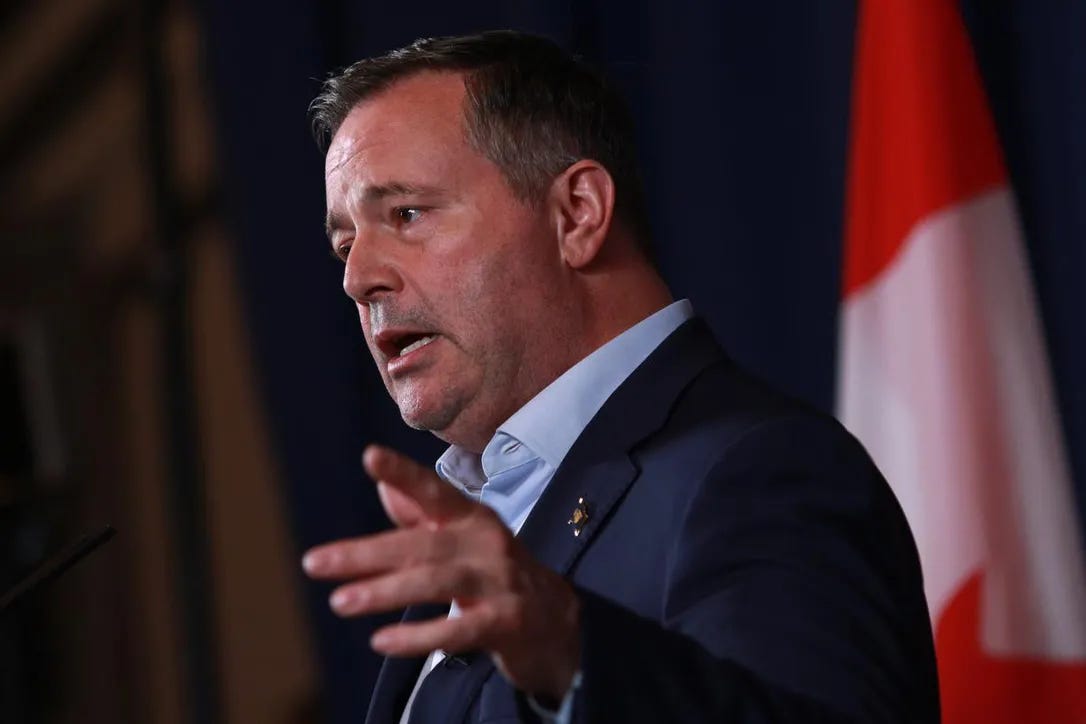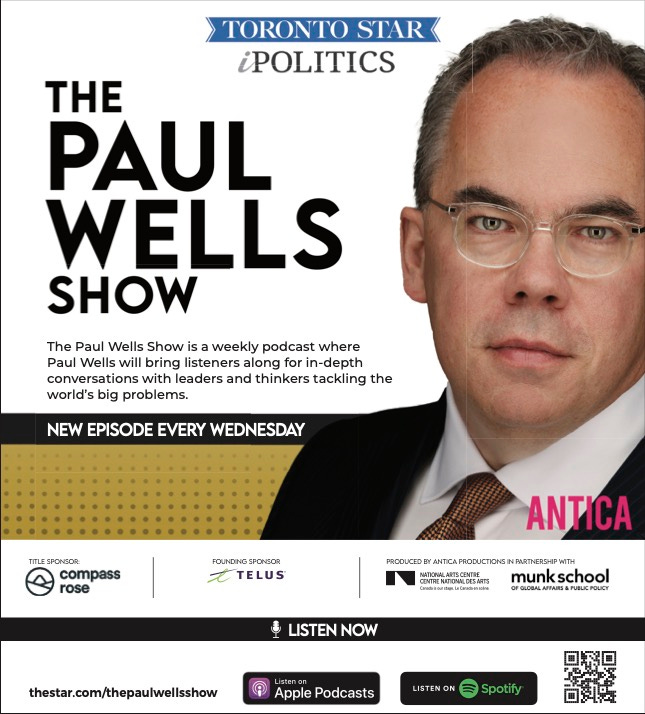On the podcast: Jason Kenney
Alberta's soon-to-be-former premier ponders whatever happened to Jason Kenney
We’ve reached cruising velocity on the Paul Wells Show podcast.
Episodes 1 and 2, featuring the US ambassador to Canada David Cohen and the former Canadian ambassador to Ukraine Roman Waschuk, have received an excellent response.
This week at the Munk School at the University of Toronto I’ll record an interview with Peter Singer, the top Canadian at the World Health Organization, about the global state of the COVID pandemic.
And last night I had a fantastic conversation with the singer Sarah Slean about her upcoming concerts with the Vancouver Symphony, performing music from two of Joni Mitchell’s greatest albums. That one’s very different from the early tone we’ve set here, and I’m not gonna lie, when we started recording I wasn’t sure I’d use it for the podcast. But now I’m eager to share it with everyone.
Today’s episode is another fascinating conversation. I spoke with Alberta premier Jason Kenney about the leadership review vote that put him out of a job; the devastating effects of COVID skepticism and vaccine reluctance on his political coalition; the influence of Donald Trump on Canadian politics; and what it was like to work with Chrystia Freeland.
I caught Kenney in a thoughtful, almost wistful mood, and I think the result is one of the most revealing glimpses at a guy who seemed unstoppable in Alberta politics until he was stopped.
Here’s where you can find my podcast conversation with Jason Kenney. Follow or subscribe at Apple Podcasts, Spotify, Amazon Music, or wherever you listen to your favourite podcasts. If you like what you hear there or what you’ve been reading here, tell a friend. When you smash that Subscribe button, you make all of this work possible.
I’m so grateful to our Founding Sponsor, Telus, and our Title Sponsor, Compass Rose. I couldn’t get this show to you without their generous help. The institutional basis for this work is my post as the inaugural Journalist Fellow-in-Residence at the University of Toronto’s Munk School of Global Affairs and Public Policy. Our Ottawa partner is the National Arts Centre. Antica Productions turns it all into a podcast and keeps all our many partners in the loop. The Toronto Star and iPolitics distribute and promote The Paul Wells Show. The legendary Kevin Breit recorded and performed the awesome music. Thanks to them all.
Supplementary reading:
• This 2011 column for a noted Toronto lifestyle magazine, written when Kenney was the federal immigration minister and Justin Trudeau was the immigration critic in Michael Ignatieff’s Liberal caucus, contained this sentence, which at the time felt cheeky to write: “Increasingly, Jason Kenney and Justin Trudeau look like the future of their parties.”
Today Trudeau looks pretty good in that confrontation. He’ll still have a job in politics after next week. On the other hand, Kenney started earlier, and his 24-year career in federal and provincial legislatures would, if transposed to his antagonist, take Trudeau to 2031.
The argument that inspired the column was a dispute over a federal citizenship guide, prepared by Kenney’s office and containing the phrase “barbaric cultural practices,” language Trudeau found infuriating. It went in the guide all the same. A decade later, after seven years of Trudeau Liberal government, that phrase and the rest of the paragraph that contained it are still in the guide.
I’m in The Logic today, with a long review of a wild book by Silicon Valley tech exec Balaji Srinivasan, who says social networks could form the basis for real, physical, globe-spanning new countries built on the land the networks’ members occupy. I’m highly skeptical. But I was fascinated by Srinivasan’s analysis of the modern world — divided into “people of the State” whose influence increases if the State’s clout grows, and “people of the Network” who use the net to escape or combat State overreach. It cast new light on disputes between central banks and cryptocurrencies; between legacy media and, say, Substack newsletters; between residential neighbourhoods and protesting convoys; and between Justin Trudeau and Pierre Poilievre.
And I’ve stopped porting my Quebec election columns for L’actualité magazine over to this newsletter, but I’m still writing them. There’ll be another one today. You can find it and the rest over on this page at L’actualité’s website.






I was looking forward to compare this interview with the one from CPAC in 2019.
Despite how different his situation is in both interviews, there's still some prevalent consistencies of the Jason Kenney personality; a truck driving, grass-roots, passionate Canadian focused on short-term gains over long-term bets.
Once again I am struck by how poorly political parties chose their leaders, and how this nonsense of signing up members opens them up to being mobbed. Losing Kenney to national politics was bad enough (why wasn't he leader of the PCs?), but seeing him go down in Alberta was depressing.
Otherwise, nice to hear from an adult politician!